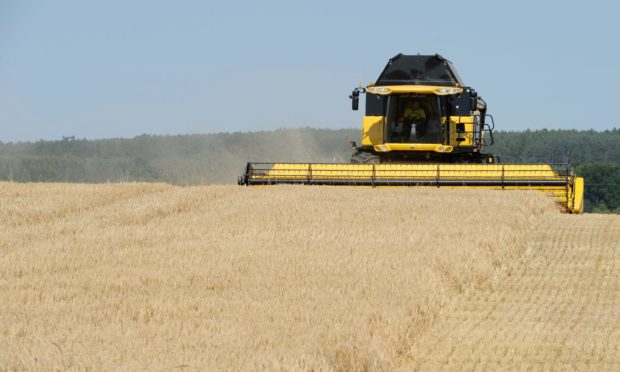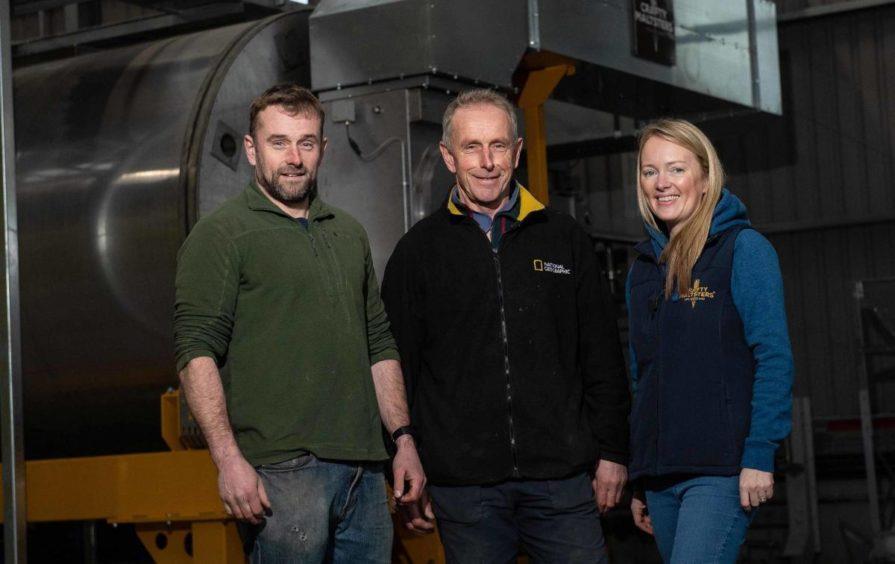With an agreement between the UK and EU hanging in the balance, we look at the potential implications for the sector as it awaits the outcome of negotiations.
With a Brexit deal almost in sight, the worst, some may think, could soon be over.
But with very little time to prepare ahead of January 1, many of Scotland’s food and drink businesses which export to countries in the European Union fear they could be hit with additional costs, red tape and transport delays – even with a deal.
In the letter the signatories, including James Withers of Scotland Food and Drink, Scott Walker of the National Farmers’ Union Scotland, and Jimmy Buchan of the Scottish Seafood Association, argued the transition period was needed to avoid “enormous damage to our industry” after the coronavirus pandemic which has led to losses estimated at £3 billion.
In response, the UK Government says it is implementing significant measures to prepare for the guaranteed changes at the end of the transition period – including investing £705 million in border infrastructure, staffing and technology, providing £84m in grants to boost the customs intermediaries sector, and implementing border controls in stages so traders have sufficient time to prepare.
Earlier this week, a joint food industry and Scottish Government programme was announced which will see £5m invested in initiatives to help cushion the impact of Brexit and assist with recovery efforts after the pandemic.
Recovering from Coronavirus and fuelling Brexit preparation.
Today we launch our new, joint programme for the industry. With it comes a £5million funding commitment from @ScotGov to support delivery by the Scotland Food & Drink Partnership.
More info➡️https://t.co/jFjzuSjd5l pic.twitter.com/4p0ac5EHy9
— scotfooddrink (@scotfooddrink) November 21, 2020
Food and drink is a significant contributor to Scotland’s economy, valued at £15bn annually, and employing 120,000 people.
More than 70% of Scottish food exports, estimated to be worth £1.2bn, go to the EU. Scottish food and drink exports plunged more than 25%, almost £1bn, in the first six months of this year largely due to the pandemic, so Brexit comes at a time when the industry is already struggling to recover from its losses.
Any resultant deal from the current EU-UK negotiations is expected to be a basic zero-tariff, zero-quotas agreement. But while this may on the surface seem like a good outcome, for food producers exporting to EU countries it still poses a number of challenges.
How could food businesses be affected?
There have been warnings of queues at UK ports as lorry drivers will be required to have special permits and will need to have completed paperwork to present on arrival in EU ports. For exports of fresh seafood, meat and other produce, any delays could mean the produce cannot be kept cool enough to remain in premium condition.
And even under a free trade deal, food prices could still rise because of new red tape around imports and exports, including customs checks and health controls on both sides.
When it comes to farms, food and hospitality businesses recruiting from the EU, the need to check each worker’s right to work in the UK could hold up recruitment – and in creating obstacles to employment in the UK, will workers still come in the same numbers?
“Third party” exporter
In its guidance for Scottish food and drink businesses who are looking to export to EU countries from January 1, the Food Standards Scotland website says the move out of the EU means those firms become “third party exporters”.
For fishing vessel owners there is an urgent requirement to register their boats as food businesses now and to be inspected by a relevant authority, with a warning that failure to do so by December 31 would mean their catch will not be permitted for export to the EU.
But, in a blow to the Scottish fishing sector, it has emerged not enough environmental officers have been recruited in Scotland to certify catches for export to the EU.
Fishing vessels owners in Scotland are legally required to register their fishing vessels as food businesses, and be inspected by the relevant local authority to enable their catch to be exported to the EU from 1 January 2021: https://t.co/zZknEHmNoP #Brexit pic.twitter.com/BKcdIWR61P
— FoodStandardsScot (@FSScot) November 25, 2020
Alison Milne is a director of Scotland Food and Drink, which promotes the interests of the industry, as well as running a craft malting business, the Fife-based Crafty Maltsters. She has both concerns for the entire sector, and for her own business, with the last-minute nature of negotiations meaning all firms can do is wait.
She said: “Our trade is mainly with customers in Scotland, but Covid has demonstrated we are part of a supply chain that has been massively impacted and therefore we will be. In Crafty Maltsters terms, because we’re such a small part of the malting supply chain, we’ve got a massive market out there to take advantage of.
“It’s predominantly brewing customers that we’ve supplied to this year, but we’re moving more towards distilling next year. We have contracts in place with distillers and, at the moment, I don’t get any sense that Brexit is impacting those day-to-day production decisions. It could be people are choosing to ignore it, but clearly in the distilling sector from an export point of view Brexit could have a big impact.
“There’s been some insight work done through Scotland Food and Drink to discover how well prepared people feel and more often than not the answer is we don’t feel particularly well prepared. That’s why support services need to be set up, but a lot of businesses are hanging on to the fact there will be a deal done and things will become clearer as to how day-to-day trading will be impacted.”
While there will be implications for any business exporting to the EU, it’s those trading live and fresh produce that could face the greatest immediate impact. And on farms, further barriers to moving produce quickly and easily can mean stocks pile up.
Alison explained: “It’s really challenging and particularly in some sectors, like shellfish, where you have a really short shelf-life then there’s definitely a bigger impact.
“This year has been particularly tough in an arable farming sense not just because of Covid but because of the weather and the way the planting season has gone. Because of what’s happened in the malting barley side of things you’ve got that big carry over of stock and you’ve got grain traders or maltsters not wanting to uplift from farms so farms are struggling.
“In our case we have to bring cattle in because the ground is so wet, but the cattle shed acts as a grain store so the fact that they’re not collecting the malted barley puts us in a really challenging position. So I think from a logistics and a trading point of view, we’re at the point where I feel like we’ve been through the wars a bit and it’s going to be difficult to add on top of that. In farming we’re almost the shock absorber because we tend to weather things and there’s a resilience built into the farms because we’re used to dealing with risk because of the weather.
“There’s also a big risk for livestock (trading). You’ve got the sheep trade saying they’d be decimated in a no-deal scenario.”
Is there a silver lining?
Although the risks and potential damage from Brexit are clear, Alison believes there is room for optimism with the disruption caused by the pandemic together with a looming Brexit, proving to be a catalyst for change.
“It has galvanised the sector in rising to the challenge,” she said. “And it’s highlighted the bits where we’re failing but also the strength of the industry.
“We’re lucky in a Scottish context that it’s a small network and we’ve got talented people driving things forward and an infrastructure the length and breadth of the country.
“I try to err on the optimistic side; I do see a significant opportunity. It’s been accelerated by Covid – that will hopefully help us weather the Brexit storm – but within the farming, food and drink sector I see a real recognition that we have to address some of the big challenges like climate change etc, but we’re going to do it together taking a whole supply chain approach.”
With Scotland’s fresh produce building a reputation for quality around the world, the focus will be on promoting the nation’s “sustainability” credentials – where we are producing food in a carbon-neutral way with an emphasis on premium quality and nutrition.
Alison added: “We’ve got a reliance on manufacturing, and consumerism and cheap food. How do we get our house in order to look at what the Scottish brand is all about? There’s a real push around that sustainability mark that Scotland could have. We have the capacity to be world-leading in relation to sustainably-produced food but in order to do that, the farmer, fishermen all the way through to retailers all need to be involved in developing that brand.”

